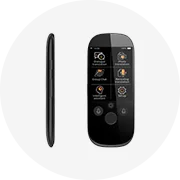In a world where digital devices dominate communication, the classic diary book holds its own as a cherished repository of thoughts, experiences, and schedules. This timeless instrument serves not only as a means for recording daily events but also as a personal companion for reflection and creativity. The versatility of a diary book extends across various forms, each tailored to cater to the unique needs of its user, from the bustling professional to the introspective writer.
Types of diary books
Diary books come in an array of types, each with its distinct purpose. The travel diary book, for instance, stands as a loyal companion for the wanderlust-driven individual, capturing the essence of new destinations and the memories forged along the journey. A custom diary book offers a personal touch, allowing users to tailor their writing space to their specific preferences and requirements, be it through customized covers or specialized paper. For the culinary enthusiast, a food diary book provides a structured way to document recipes, dining experiences, and even dietary habits. Meanwhile, younger audiences may gravitate towards a diary book for girls, which often features vibrant designs and themes that inspire creativity and self-expression. New parents may find a baby diary book indispensable for chronicling the milestones and growth of their child, creating a treasured keepsake for years to come.
Features of diary books
The functionality of a diary book is as crucial as its type. Durability is a key feature, ensuring that the memories and records inscribed within can withstand the test of time. Many diary books also come with organizational aids such as indexes, tabs, and date entries, aiding users in navigating their notes efficiently. A photo diary book elevates the traditional diary experience by providing spaces or pockets for photographs, allowing for a visual narrative to accompany the written word. This intertwines imagery with storytelling, crafting a more vivid recollection of events. The physicality of writing in a diary book also has a tactile appeal that digital devices cannot replicate, offering a more intimate and focused form of recording one's life.
Applications of diary books
The applications of diary books are as varied as their users. In professional settings, they serve as essential tools for planning, meeting notes, and tracking project progress. Educational environments see diary books as instrumental in teaching students the discipline of scheduling and the art of journaling. Diary books also play a significant role in personal development, serving as a medium for goal setting, brainstorming ideas, and tracking personal growth. Mental health professionals often advocate for the use of diary books as a means of therapy, where individuals can articulate feelings and thoughts in a private, unfiltered manner.
For creative souls, diary books act as a canvas for sketches, poetry, and stories. They become outlets for creativity, where ideas can flourish without the constraints of format or expectations. The act of penning down thoughts and experiences in a diary book is also meditative, providing a quiet space for reflection amidst the noise of daily life.
In essence, the humble diary book remains an invaluable tool for individuals across various walks of life. Its ability to adapt to the needs of its users, from a baby diary book to a travel diary book, showcases its enduring relevance in an ever-evolving world. Whether one seeks to capture life's fleeting moments, foster self-improvement, or unleash artistic endeavors, the diary book stands ready to collect the narratives of the human experience.













































 浙公网安备 33010002000092号
浙公网安备 33010002000092号 浙B2-20120091-4
浙B2-20120091-4